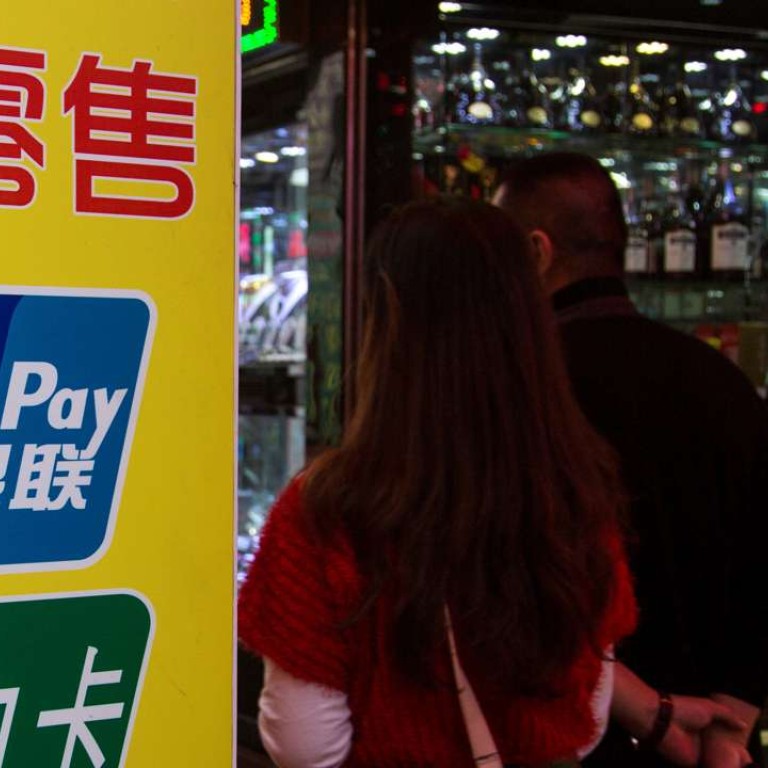
What China has done to stop massive amounts of cash from fleeing the country
Series of moves taken by the authorities in recent months to control flow of capital overseas as nation’s currency weakens against the dollar
The Chinese authorities are about to halve the amount of cash China UnionPay bank card holders can withdraw from ATM machines in Macau, the South China Morning Post has learned. It is the latest step by Beijing to curb the flow of cash out of the country as the value of the nation’s currency weakens against the dollar.
Here are other measures the authorities have taken over recent months to tackle the problem:
1. Shanghai’s municipal foreign exchange authority told bank managers in the city in November that all overseas payments under the capital account of more than US$5 million would have to be submitted to Beijing for clearance, sources familiar with the matter said.
2. The People’s Bank of China will not approve overseas investments of more than US$10 billion, mergers and acquisitions valued at more than US$1 billion outside a Chinese investor’s core business and foreign real estate deals by state-owned enterprises involving more than US$1 billion, according to an internal document seen by the Post.
3. The central bank last month ordered the country’s banks to stop issuing credit cards that allow customers to transact purchases in dual currencies.
Credit cards issued in China with Visa or MasterCard must be replaced with those issued by the country’s dominant currency clearing company China UnionPay when they expire, a policy that will help Beijing to better monitor capital flows across the borders.
4. China UnionPay, the state-backed bank card issuer, banned mainlanders using its cards to buy investment-linked insurance products in Hong Kong from the end of October.
5. China’s foreign exchange regulator tightened checks over remittances by foreign firms. Deutsche Bank met hurdles in sending funds offshore, Bloomberg reported in September, although China’s foreign exchange regulator denied the report. Two months later the European Chamber of Commerce in China and the American Chamber of Commerce in China, two lobby groups representing foreign business interests on the mainland, publicly expressed concerns about the extra official approvals needed to transfer money overseas.
6. The central bank required foreign banks to set aside 20 per cent of sales in foreign exchange forward-trading for their clients from August 15, with the reserves to be carried at zero interest for one year.
7. Regulators imposed rules for overseas transaction using UnionPay cards in February, setting the limit at US$5,000 per transaction to purchase Hong Kong insurance products.
8. The State Administration of Foreign Exchange required banks to limit yuan outflows and reduce offshore yuan positions and liquidity, Bloomberg reported. Reuters reported that the government asked domestic funds to postpone issuing new outbound investment products under the Qualified Domestic Institutional Investor programme.
9. The State Administration of Foreign Exchange imposed caps on cash withdrawals overseas using China UnionPay bank cards.
UnionPay card holders were allowed to withdraw a maximum 50,000 yuan (HK$56,000) on each card from October to December 2015 and a maximum 100,000 yuan in 2016. the daily withdrawal limit was 10,000 yuan.
10. Banks often require appointments for customers to exchange yuan for dollars over the counter and can turn away walk-in clients.
11. Regulators have sent oral instructions to banks to beef up internal checks on large foreign exchange transactions by their clients and possible inflating of the figures for invoices overseas, a common way to shift large amounts of money abroad.

